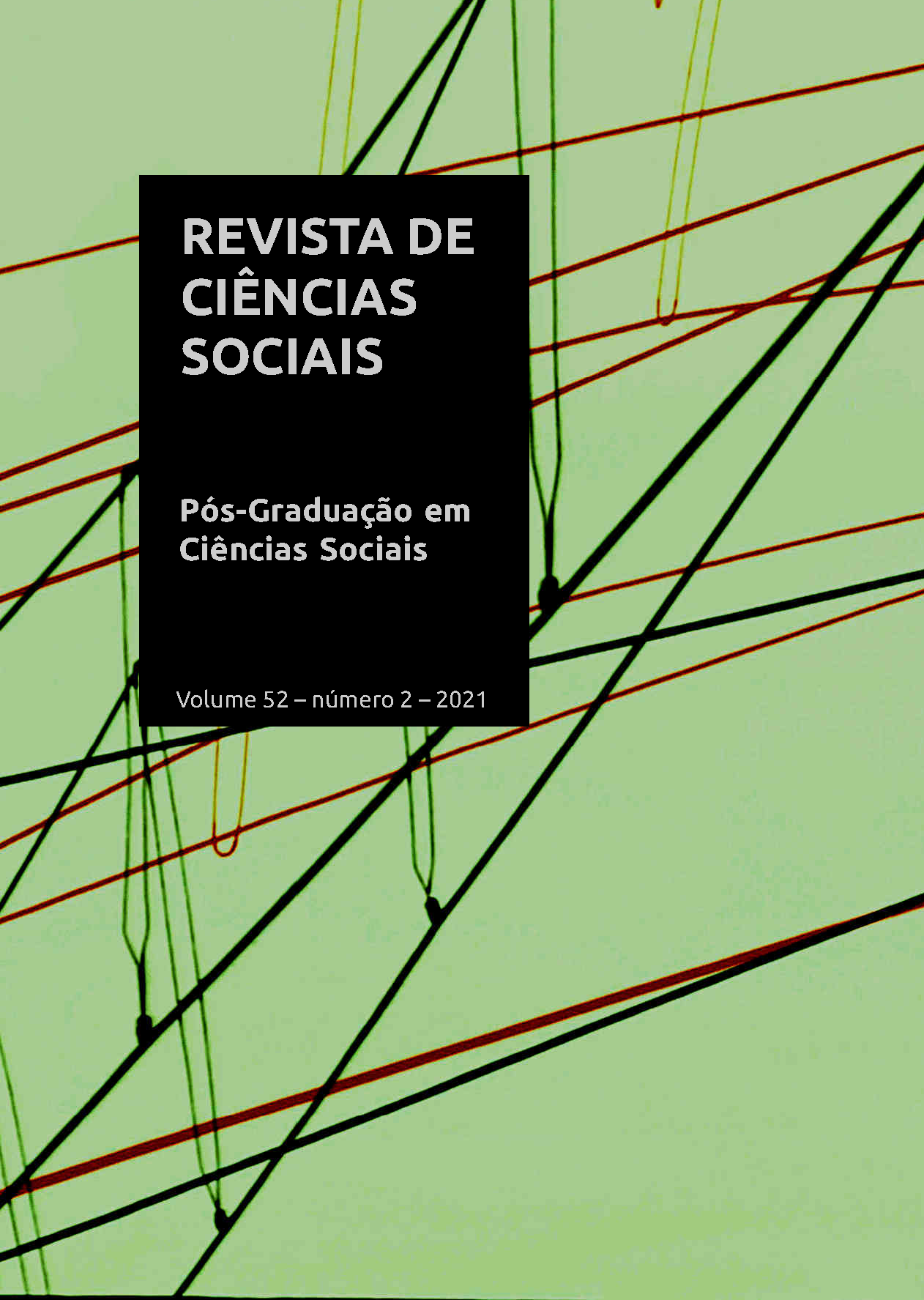Balanced instability
the Melanesian Kula according Simmel’s social theory
DOI:
https://doi.org/10.36517/rcs.52.2.a03Keywords:
Gift theory, reciprocity relations, Melanesian Kula, Bronislaw Malinowski, Georg SimmelAbstract
The present study can be defined as a qualitative research based on secondary sources that aims to reinterpret the ethnographic description of the Melanesian Kula elaborated by Malinowski based on the principles of Georg Simmel's social theory, highlitghing his gift theory and his definition of reciprocity relations. Thus, the main source of data for this investigation is the ethnographic description elaborated by Bronislaw Malinowski in his classic “Argonauts of the Western Pacific”. Theoretically, the primacy of the process over social balance, the primacy of interaction over the participants of the interaction, and the always tense articulation between the elements of instability and stability represent the principles of Simmel’s social theory that are particularly relevant to this study. Nevertheless, the imposing character that is persistent in reciprocity relations constitutes the central element to be mobilized in the interpretation of Malinowski's classic description of the Melanesian Kula that this study aims to offer. What we will try to demonstrate with this analysis is that the instability that make up any human relationship, including reciprocity relationships, remains latent even in a social institution that represents one of the most efficient stabilizations of inter-human contact, the Melanesian Kula, which can be defined as a wide network of links of obligation consolidated through the permanent exchange of gifts.
References
EVANS-PRITCHARD, Edward. E. Antropologia social. Lisboa: Editora 70, 1985.
FOUCAULT, Michel. Em defesa da sociedade. São Paulo: Martins Fontes, 1999.
LEACH, Jerry W. “Introduction.” In: LEACH, Jerry; LEACH, Edmund (org). The Kula: new perspectives on massim exchange. Cambridge: Cambridge University Press, 1983.
MALINOWSKI, Bronislaw. Argonautas do Pacífico Ocidental. São Paulo: Abril S.A. Cultural e Industrial, 1976.
MAUSS, Marcel. Sociologia e antropologia. São Paulo: Cosac & Naify, 2003.
PYYHTNEN, Olli. Simmel and “the Social”. London: Palgrave and Macmilan, 2010.
SIMMEL, Georg. Über sociale Differenzierung. Leipzig: Verlag von Duncker & Humblot, 1890.
______. Kant und Goethe: die Geschichte den modernen Weltanschauungen. Berlin: Marquardt & Co. Berlin, 1906.
______. Soziologie: Untersuchungen über die Formen der Vergesellschaftung. Leipzig: Verlag von Duncker & Humblot, 1908.
______. Goethe. Leipzig: Verlag von Klinkhardt & Biermann, 1913.
______. Lebensanschauung: vier Metaphysische Kapitel. München und Leipzig: Verlag von Duncker & Humblot, 1922.
______. On individuality and social forms. Chicago and London: The University of Chicago Press, 1971.
______. Ensaios sobre teoria da história. Rio de Janeiro: Contraponto, 2011.
SOUZA JR., Robson R. Entre a unidade e a distinção: a configuração paradoxal das relações de dominação e das relações de reciprocidade na teoria social de Simmel. Revista Tempo da Ciência. v. 24, n. 47, p. 58-67, 2017.
Published
How to Cite
Issue
Section
License
Autores que publicam nesta revista concordam com os seguintes termos:- Autores mantém os direitos autorais e concedem à revista o direito de primeira publicação, com o trabalho simultaneamente licenciado sob a Creative Commons Attribution License, que permite o compartilhamento do trabalho com reconhecimento da autoria do trabalho e publicação inicial nesta revista.
- Autores têm autorização para assumir contratos adicionais separadamente, para distribuição não-exclusiva da versão do trabalho publicada nesta revista (ex.: publicar em repositório institucional ou como capítulo de livro), com reconhecimento de autoria e publicação inicial nesta revista.
- Autores têm permissão e são estimulados a publicar e distribuir seu trabalho online (ex.: em repositórios institucionais ou na sua página pessoal) a qualquer ponto antes ou durante o processo editorial, já que isso pode gerar alterações produtivas, bem como aumentar o impacto e a citação do trabalho publicado (Veja O Efeito do Acesso Livre).



